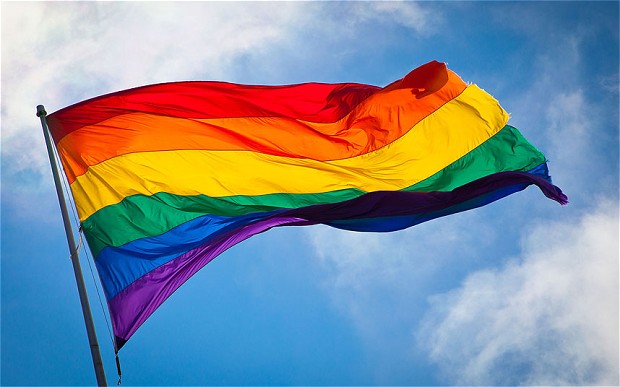5th July 2021 Oslo, Norway
My LGBT+ History

Visibility is important. In my first month in Norway the evening news ran a profile piece on me in which I talked about my husband Xavier. A 16-year-old boy wrote to me and told me that seeing this had made him believe for the first time that his dreams were worth just as much as everybody else’s.
Coming out as LGBT+ is hard and stressful, even with the level of acceptance in society that we have today, but when I started in this job it could cost you your career.
I joined just six weeks before the ban on LGBT+ people serving in the diplomatic service was lifted in 1991. Many of our colleagues, if discovered, were humiliated and sacked. There was no amnesty for those who joined before the ban was lifted, so many of us lived in fear even afterwards. I was outed to Security Department by colleagues while on my first posting, then told to get on the next flight home and expect dismissal. I was eventually allowed to stay, but the price was heavy: a list of family and friends I was forced to come out to; a pink tag attached to my personnel file, and years of resentment and fear.
But from that moment on I could at least choose how to talk about who I am. The lessening of the fear and shame made me better at my job, not worse. Gradually I could start to act like being gay in this job was the most natural thing in the world. I now speak about my life honestly and confidently when asked. To me, that is the best way I know how to bring the best of myself to work.
Experiencing full-on homophobia is thankfully rare in the job now. I smile when people assume because I am married that I’m married to a woman, and I correct them politely. I don’t make a scene when I hear laddish homophobic jokes, but I make a point – even if the jokes come from those with power – to drop into the conversation later that I am gay. It still takes effort every day to guide legal and regulatory equality towards societal and organisational acceptance.
Those pink personnel tags were the reason FLAG (FCDO LGBT+ Staff Association) was formed. In those days it took bravery to stand up and say this was wrong. I was convinced that we were engaging in an exercise of career limitation, but the visibility was so important. That’s why we ask all of you – LGBT+ and allies – to be visible in your support, conscious of language – and even mindful of history.
The 30th Anniversary since the lifting of the ban is an important moment in our history. It’s about remembering forgotten or suppressed stories. It’s about honouring wronged friends and colleagues. And it’s a reminder that inclusion is a process, rather than an event.
You don’t have to be gay – or even a leader – to be a role model to LGBT+ colleagues. Modelling sincere, determined, and visible inclusivity – and demanding the same from those around you – can be just as inspiring.
I did not know that as late as 1991 people were being curtailed. What an enormous shame.
I’m sorry Ambassador that you had to go through what you did. It’s appalling and brought tears to me.
What I find appalling is when an indigenous 27 year old who speaks 7 languages is unwelcome at the FCDO because they are white.
Use your influence to put a stop to this. It’s no different as to when the LGBTQ were rejected and humiliated.
We can’t correct the past but we can certainly do something about current wrongs. Discrimination of any kind is never acceptable.
Again I’m so sorry to read what you went through.